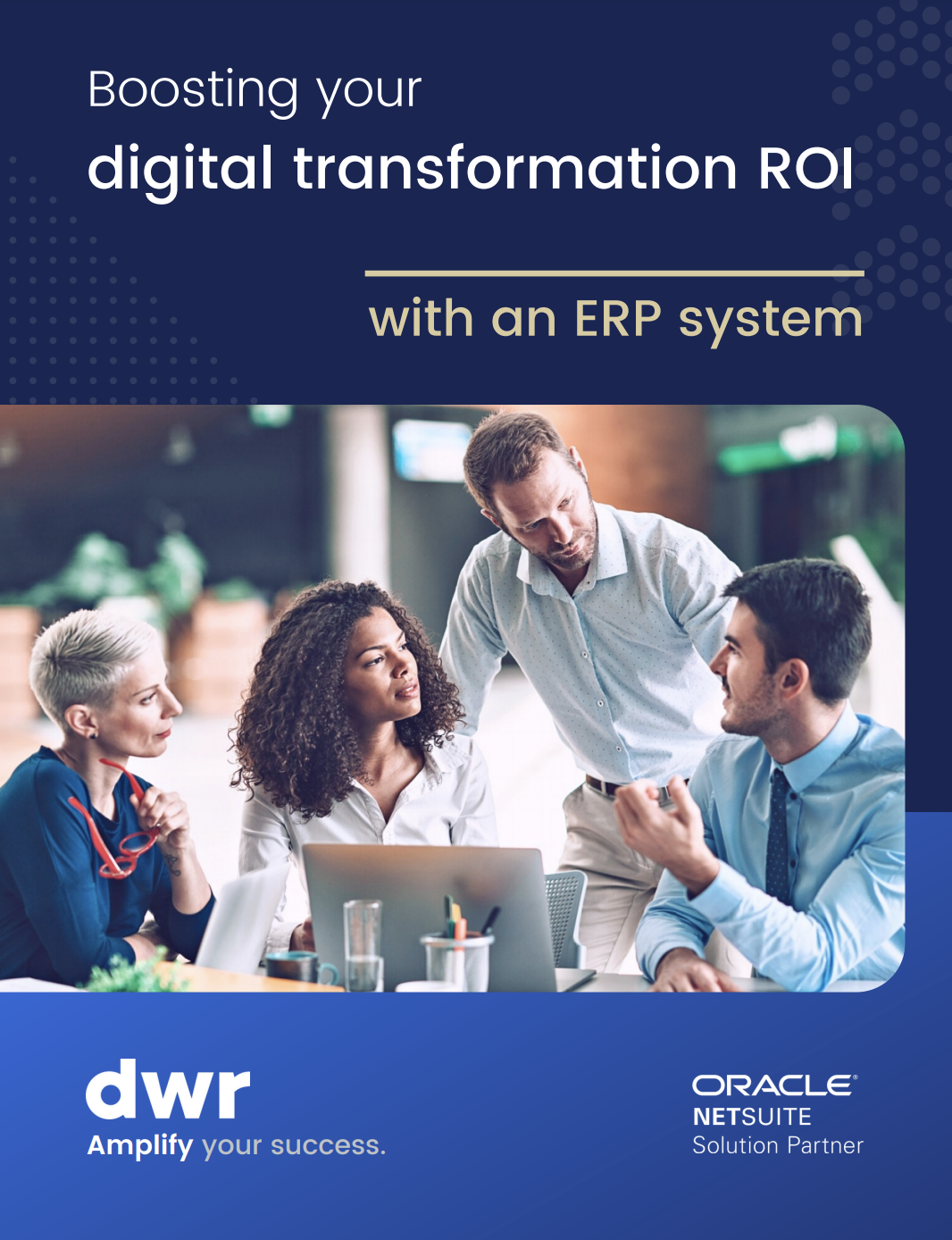Digital transformation is no longer optional—it’s essential for creating scalable, efficient operations and lasting competitive advantages. This guide explores how ERP systems maximise ROI by streamlining processes, centralising data, and enabling smarter decisions.
What You’ll Learn:
- Why Digital Transformation Matters:
- Accelerate efficiency by replacing manual processes with automated, digital systems.
- Support remote and hybrid working conditions with cloud-based tools.
- Increase flexibility to adapt to shifting market demands and customer expectations.
- What an ERP System Does:
- Consolidates all core business functions—finance, CRM, sales, inventory, and project management—into a single, unified platform.
- Eliminates data silos and process inefficiencies, enabling real-time reporting and automation.
- How ERP Drives ROI:
- Direct Benefits: Boost profitability, enhance employee productivity, and improve customer lifetime value (CLV).
- Strategic Outcomes: Enable faster decision-making, anticipate demand accurately, and manage supply chain disruptions effectively.
- Automation Gains: Streamline tasks such as accounts receivable, inventory management, and customer service for greater efficiency.
- Measuring Success:
- Benchmark key metrics like revenue, CLV, and process efficiency.
- Track employee adoption and engagement with the ERP system.
- Use built-in reporting tools to measure indirect benefits, including faster project delivery and better customer experiences.
.svg)
